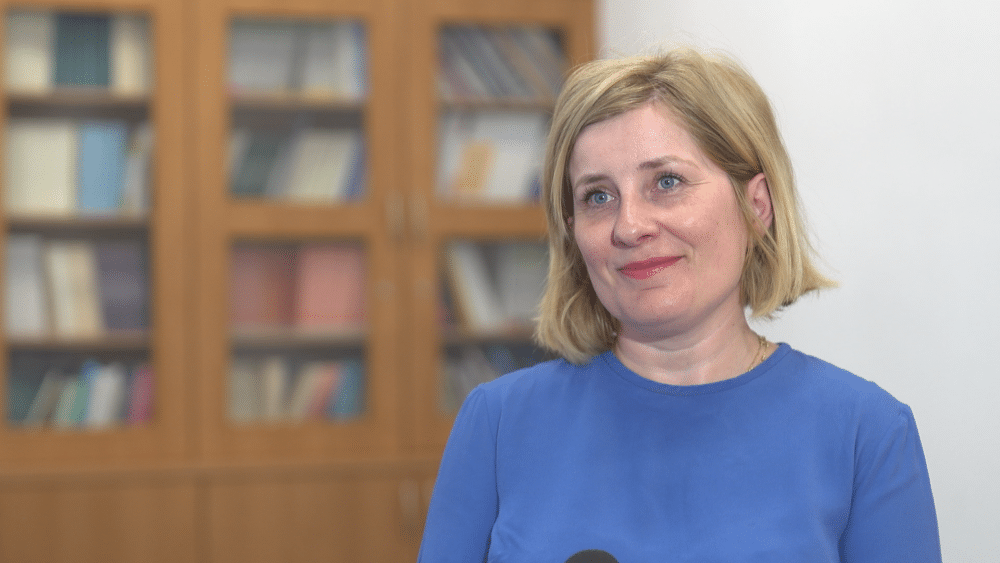The process of forming the new European Commission is set to conclude in several months. However, it is already known that environmental concerns will remain a priority in EU policies. Yet, in the upcoming years, climate policy will put a stronger emphasis on the competitiveness of the European economy, green industry, and social dialogue with all interested parties. “The EU cannot afford negligence and communication mistakes that occurred in recent years,” emphasizes Dr. Paulina Sobiesiak-Penszko from the Institute of Public Affairs.
“The European Green Deal is more than climate protection. It’s a vision of Europe in a few decades, looking at how Europe can build the competitiveness of its economy. We should think about it in a broader sense. There’s no turning back from such transformation,” says Dr. Paulina Sobiesiak-Penszko, director of the Sustainable Development and Climate Policy Program at the Institute of Public Affairs and a climate coalition expert.
The Green Deal and climate neutrality by 2050 were among the key priorities of the previous European Commission under Ursula von der Leyen, who was re-elected for another five-year term after the June elections. The new head of the European Commission has already asked member states to nominate their candidates for commissioners by the end of August. The process of forming the new Commission will be completed in a few months when its new personnel and priorities for the coming years will be presented.
Ursula von der Leyen outlined some of these priorities in her expose and political program published in mid-July. She declared that the course set by the European Green Deal, aimed at reducing emissions by 55% by 2030 and achieving total climate neutrality by 2050, will be maintained. “The climate crisis is accelerating, and decarbonizing our economy is becoming a challenge as urgent as its industrialization,” wrote von der Leyen, noting that the EU needs to listen more and respond better to those affected by the EU’s green deal legislation.
The European Commission’s top priority in the coming years will be the continuation of energy transformation, building Europe’s independence from fossil fuels, securing the independence of industry and all critical infrastructure related to energy security, and preparing for the transformation of district heating, buildings, and transport. However, it is also essential to build social support for this transformation. This would not be possible if people do not understand how it will affect their jobs or household costs, says the Director of the Sustainable Development and Climate Policy Program at the IPA. She emphasizes the importance of dialogue and education against misinformation and propaganda, noting recent farmer protests against the Green Deal as evidence.
Maintaining the ‘green’ stance in EU policy means that the European Commission is likely to launch public consultations on a new intermediate climate target for 2040 at the beginning of 2025. EU policymakers emphasize that the work on it should be done with close cooperation with industry and society. “We will work with industry, social partners, and all interested parties at every step,” said Ursula von der Leyen in her political program.
During her expose to the European Parliament on July 18, von der Leyen noted that the regulations under the Green Deal will be applied with particular emphasis on green industry and EU economic competitiveness. The European Commission plans to support businesses in implementing regulations aimed at achieving EU climate goals through investments and facilitating access to cheap raw materials and energy. Within the first 100 days of taking office, the new European Commission will present the so-called Clean Industrial Deal, a program for industry competitiveness and increasing the number of high-quality jobs.
In her political program, Ursula von der Leyen also talked about agriculture and food security. She emphasized the need to empower farmers, support family farms, and reward farmers working with nature and contributing to decarbonizing the economy on the path to zero net emissions by 2050. She also announced investments in farm innovation, strengthening farmers’ position under increasing pressure from climate change, unfair global competition, higher energy prices, and difficulty accessing capital.
Dr. Paulina Sobiesiak-Penszko underlined that farmers want to be partners for the EU in creating a vision for the future of agriculture and implementing environmental protection solutions. Dialogue is needed so that farmers understand how the transition will affect their farms.
Finally, the European Union should consider the feasibility of free-trade agreements relating to food and primarily focus on local food and supporting small farmers. Localized food chains minimize the risk to food security, says Dr. Paulina Sobiesiak-Penszko. Local governments have a significant role to play in building local food security based on existing resources and the local context.
